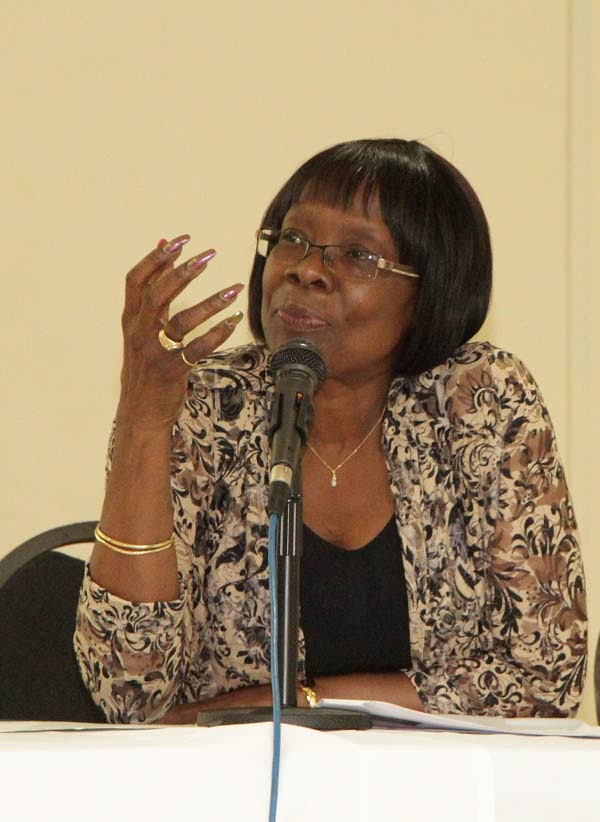War on drugs failing

Dr Agatha Carrington, Secretary, Division of Health, Wellness and Family Development, has called for greater collaboration among all sectors in tackling the illicit drug trade.
She made the appeal on Thursday while delivering remarks at a substance abuse symposium titled: Drug Trafficking: Social and Societal Effects, at the Tobago Nutrition Co-operative Society Ltd, Canaan.
The annual symposium, which began last year, was held in conjunction with the Alcohol Drug Abuse Prevention Programme.
Carrington said as policies continue to be formulated and implemented, the State and other sectors must take a hard look at the situation locally.
"In my respectful view, though, this matter of drug trafficking and its importance requires a much more co-ordinated, multi-lateral and multi-pronged approach," she said.
"As a division, we are making efforts but much more is required by other agencies, much more consistency in the approaches. We must press forward. We must continue our advocacy, because for decades the drug trade and drug trafficking is a scourge that has been driving criminal activity in Trinidad and Tobago.
"It has infiltrated every strata of our society. It is threatening the very fabric of our society and, therefore, we must continue to press on."
Insisting the war on drugs and drug trafficking is a monumental task which must be addressed frontally, Carrington observed while some efforts have been made by the State to confront the menace over the years, it is still insufficient.
"This situation is one of catastrophic proportions which we are yet to fully accept and understand. It is in our schools. It is in our families and concealed in many ways. It is in our churches, our mosques. It is on the streets. It is fuelling the economies of many islands. But what have we been doing?" she asked.
Carrington continued: "We continue, each year, to commemorate activities. As a country, we continue to 'window dress' at times what the real situation is. So, we have outrage; front page editorials; we have panel discussions; we even have punishment."
She said while scanners and other border control initiatives have been implemented to determine the extent to which the illegal drugs are passing through the country, "some of these initiatives an actions must be reviewed in the context of national policies across nations, as we seek to discourage drug trafficking in substance and application."
Carrington said the illicit drug trade raises several fundamental questions.
"Who are those who are leveraging this activity? Where are the financial resources coming from to support this enterprise? But we need to better understand and interrogate the real issues. What is the impact of technology on this phenomenon, because it is going to continue to challenge us not just for this generation but generations to come."
Communities and family life, she observed, are under siege.
"This drug trade continues to impact our security, our safety and the violence that comes with it continues to impact our young people. Our young people are forced to grow up in unacceptable environments. And we hear of residents, not so much in Tobago but in Trinidad, being afraid to leave their homes because of gang violence."
Carrington also observed gang leaders, whose wealth have been derived from drug trafficking, are adored by young people and seen as icons.
"How do we change that?"
She said parents also have a tremendous role to play in eliminating the scourge.
"Many parents have left parenting to teachers at our schools and other influential persons in communities. Indeed, on the blocks in communities, they have left our children to be parented by them."
Carrington said more attention must be paid to the at-risk population in addressing the menace.


Comments
"War on drugs failing"